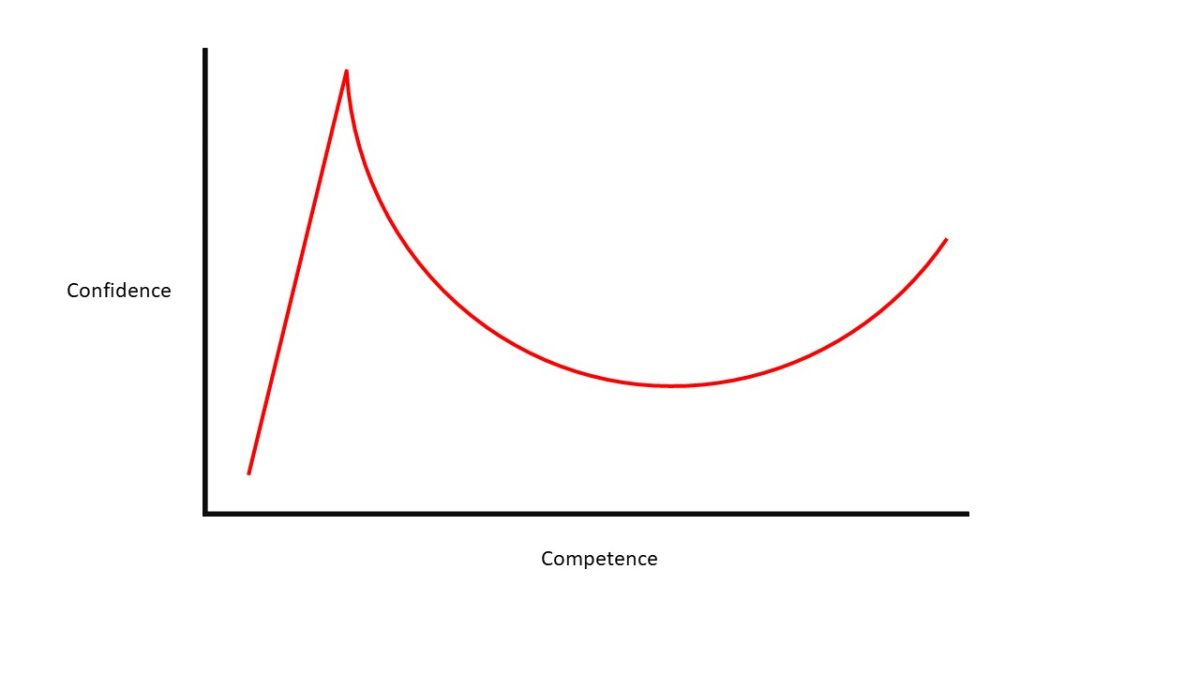I never thought I would get sick of food. Or, more precisely, the thought of it. Ever since the surge in TikTok’s “What I Eat in a Day” content, I’ve been obsessing over replicating the diets of those who seem to have it all: health, confidence, and beauty. An evil voice provokes me day and night, whispering, ‘Look at her. She’s attractive, but not eating this. You should stop eating it too.’
“What I Eat in a Day” (WIEAD) videos have evolved to include more than just a display of individuals’ daily meals: now, content creators mention the nutritional facts for each dish, along with showcasing their figure. While they have the potential to be a source of healthy inspiration and human connection, unfortunately, much of WIEAD content promotes a culture of “constant comparison” with homogeneous standards, persuading impressionable teenagers that they must change their diet to obtain self-worth. According to a study by the University of Vermont, this comparison culture puts young adults, the most vulnerable demographic for media influence, at high risk for developing “internaliz[ed] body image” and “disordered eating behaviors” upon engaging in WIEAD videos.
But I can’t escape them; they’re everywhere, all conveying the same message.
Perhaps I could have saved myself from spending hundreds of dollars on groceries if I had not known what Kendall Jenner eats, as well as ruining my hormonal cycle after cutting out ‘bad’ carbs for too long. Christine Byrne, a registered dietitian specializing in eating disorders, articulates that “teenagers and young adults… don’t yet have the confidence or sense of self” to resist the temptation to mimic others’ actions. Due to their tendency to associate diets with body image, WIEAD videos encourage young adults to alter their eating habits solely to change their outward appearance. I learned the hard way that emulating Pri Belly’s brunch routine won’t give me an hourglass waist, and I’m probably not alone.
Given that 65% of young adults use TikTok and weight-normative WIEAD videos comprise roughly 32% of the app’s content, it is easy to imagine how frequently teens feel pressured to participate in juice cleanses and intermittent fasting to transform their physiques in some way.As we scroll through TikTok absentmindedly, no one is there to remind us that numerous factors – including stress levels, routines, environments, and responsibilities – determine individuals’ emotional and physical well-being. Yet, WIEAD videos perpetuate the notion that there is a ‘correct’ way to eat. An ‘effective’ dinner for fat loss. A ‘helpful’ drink for detox.
Not only do they foster a toxic health culture by promoting a black-and-white evaluation of food, but researchers at Dublin City University have also found that only 2% of WIEAD videos contain accurate information. Indeed, most WIEAD creators – privileged, thin, young women – reveal their nutritional choices based on biased experiences rather than scientific facts.
That said, an increasing number of them began denouncing superficial “realistic” diets with low-calorie meals, instead encouraging actual intuitive eating. Filming themselves enjoying both donuts and lettuce wraps, they attempt to illustrate that we can eat anything without stress. Nonetheless, clinical psychologist Colleen Recihmann asserts that, regardless of intent, WIEAD videos still convey the message, “if you eat like me, you can look like me.” Hence, despite positive motivations, advocating for food freedom does not necessarily prevent users from feeling jealous or anxious as they compare themselves with everyone online.
Unless its fundamental nature changes, WIEAD content will continue making us feel immoral after consuming ‘bad’ foods. We’ll continue to think it’s optimal to stick to oatmeal for breakfast, salad for lunch, and maybe a ‘guilt-free’ cheat meal for dinner.
We will sink deeper into self-doubt and self-criticism.
Moving forward, WIEAD creators must take greater responsibility for their actions, acknowledging their incredible power to shape the minds of millions. After all, it won’t take much effort to rethink the content in a 30-second TikTok video… Is it not more urgent to make these short-form clips less “overly simplified” with “moralized health messages?”
Let’s roll back on the body checks and before-and-after transformations, disaffiliation diets, appearance, and self-worth. Let’s redirect the focus from describing the types and quantities of food to explaining how and why our diet choices align with our unique lifestyles.
Let’s all, not just content creators, be mindful of the way we discuss diets online. Trust me, we have better things to do than worry about eating ‘properly’ each minute of the day.
Sources:
Castro-Sloboda, Giselle. “The Dark Side of “What I Eat in a Day” Videos.” CNET, 11 May 2022, www.cnet.com/health/nutrition/the-dark-side-of-what-i-eat-in-a-day-videos/.
Conway, Emma. ““What I Eat in a Day” Social Media Trend Presents Harmful Effects.” Minnesota Monthly, 27 Mar. 2023, www.minnesotamonthly.com/general/what-i-eat-in-a-day-social-media-trend-presents-harmful-effects/.
Hou, Felicia. “TikTok’s “What I Eat in a Day” Trend Can Be Harmful. Here’s Why.” Washington Post, The Washington Post, 3 Nov. 2021, www.washingtonpost.com/gender-identity/tiktoks-what-i-eat-in-a-day-trend-can-be-harmful-heres-why/.
Knight, Ben. “TikTok and Body Image: Idealistic Content May Be Detrimental to Mental Health.” UNSW Sites, 21 Aug. 2023, www.unsw.edu.au/newsroom/news/2023/08/tiktok-and-body-image–idealistic-content-may-be-detrimental-to-.
Mayer, Beth Ann. “Only 2% of TikTok Diet Trends Are Accurate: 5 Things to Know.” Healthline, 25 Apr. 2024, www.healthline.com/health-news/tiktok–diet-trends-inaccurate.
Mercuri-Rivers, Mackenzie. “What I Eat in a Day: An Unhealthy Comparison.” Student Wellness Centre, 15 Mar. 2023, wellness.mcmaster.ca/what-i-eat-in-a-day-an-unhealthy-comparison/.
Minadeo, Marisa, and Lizzy Pope. “Weight-Normative Messaging Predominates on TikTok—a Qualitative Content Analysis.” PLOS ONE, vol. 17, no. 11, 1 Nov. 2022, p. e0267997, doi.org/10.1371/journal.pone.0267997, https://doi.org/10.1371/journal.pone.0267997.
Onque, Renée. “Nutrition Content Is Huge on TikTok, but a New Study Shows Trends like #WhatIEatInADay May Influence Disordered Eating Behaviors.” CNBC, 9 Nov. 2022, www.cnbc.com/2022/11/09/tiktok-nutrition-related-content-may-contribute-to-disordered-eating.html.
Priyanjana Pramanik, MSc. “News-Medical.” News-Medical, 27 Feb. 2025, www.news-medical.net/news/20250226/Can-you-trust-TikTok-for-nutrition-advice-Study-exposes-WhatIEatinaDay.aspx.
“UVM Study Shows TikTok Perpetuates Toxic Diet Culture among Teens and Young Adults | College of Agriculture and Life Sciences | the University of Vermont.” Uvm.edu, 2022, www.uvm.edu/cals/news/uvm-study-shows-tiktok-perpetuates-toxic-diet-culture-among-teens-and-young-adults.




